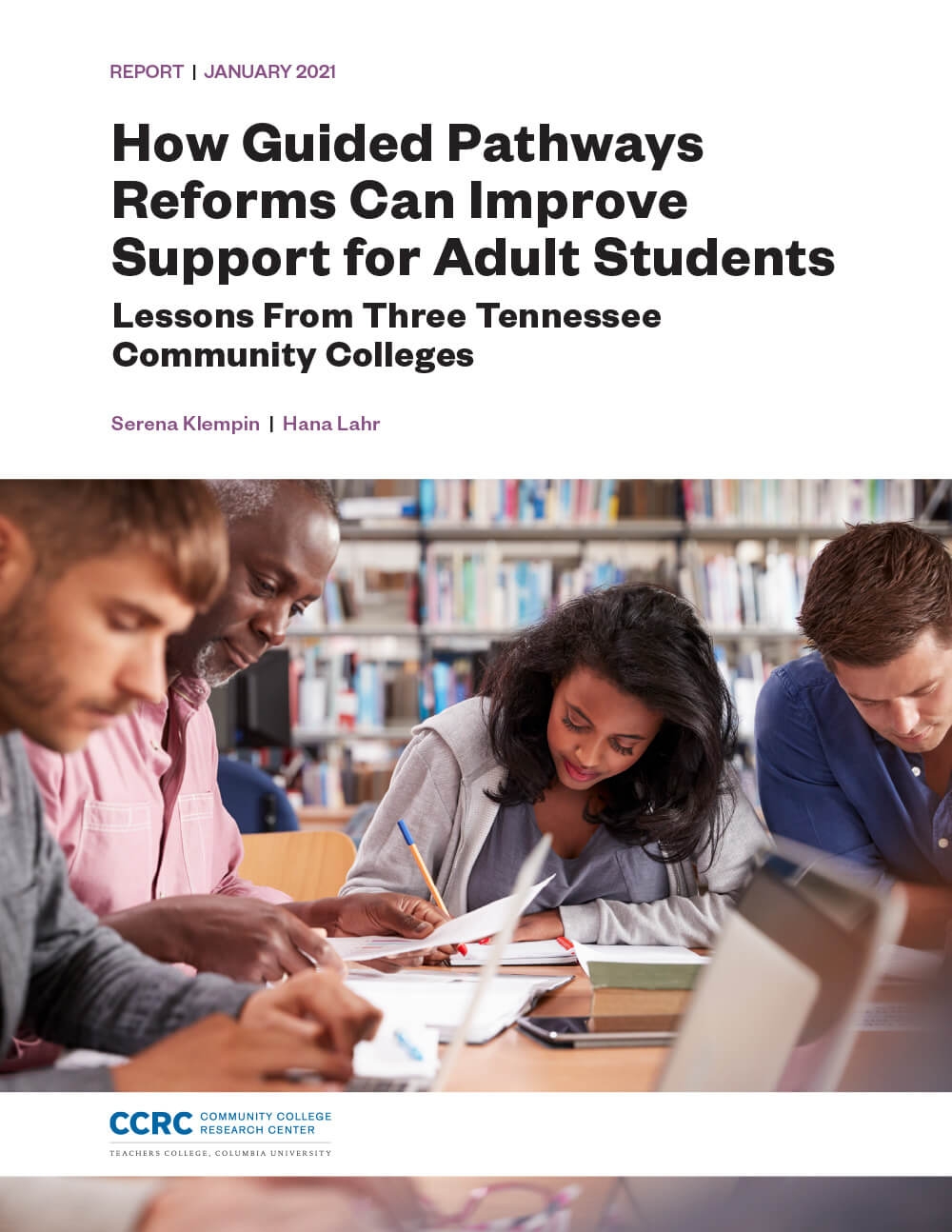
Guided pathways reforms are emerging as a promising strategy for improving student outcomes and closing equity gaps at community colleges, but little is known about how the guided pathways approach can help address challenges facing adult students. This report discusses strategies that three Tennessee community colleges that have implemented guided pathways reforms— Motlow State Community College, Nashville State Community College, and Pellissippi State Community College—are using to support adult students in three core areas: helping students choose and enter a program of study, keeping students on their path, and promoting student learning. The authors also discuss plans the institutions have for the further strengthening of support for adult students. The report draws upon interviews conducted with faculty, student support staff, and administrative staff at the three colleges as well as on focus groups conducted with adult students at each college.
Motlow State, Nashville State, and Pellissippi State are providing innovative models for addressing the needs of adult students by including targeted supports within guided pathways reforms. Differing needs within the adult student population and overlapping needs shared by many adult and traditional-age students call for a multi-pronged strategy to support adult students, consisting of:
- Universal policies and services critical in promoting success for all students, which are embedded in guided pathways reforms (e.g., mandatory college onboarding activities, career and program exploration, advising).
- Targeted supports recognizing the challenges and opportunities of adult learners (e.g., flexible scheduling, designated point of contact for adult students, family-friendly spaces and events).
- Personalized supports tailored to the needs of adults as individuals (e.g., mentoring and coaching, intake surveys to identify students’ needs and interests).
